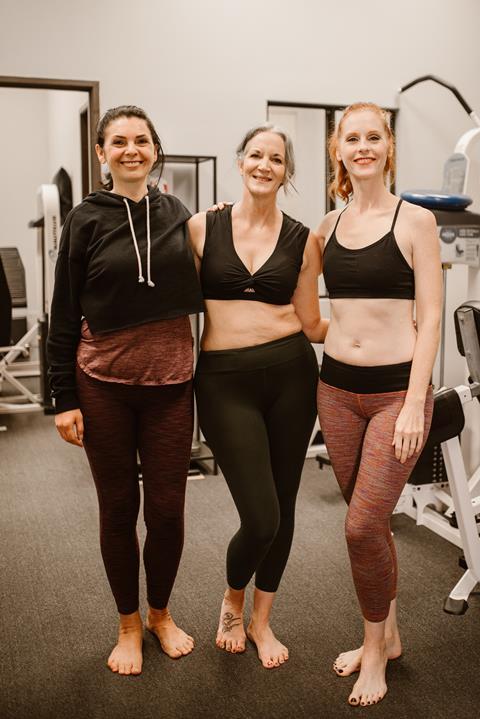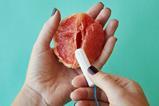During World Menopause Month, Dr Olúṣẹ̀yẹ Àríkàwé kicks off our three-part series on the menopause, explaining how we can prepare physically, psychologically and spiritually

Menopause is one of those topics that has been avoided and misunderstood for too long, and yet it has a significant effect on all areas of a woman’s life, including her health, career and relationships.
Every woman’s experience of the menopause is different. Some breeze through it, while others suffer severe symptoms and distress. The reasons for this variation are not clearly understood. Evidence suggests that attitude, belief system, climate, genetics and diet may all contribute to the severity of symptoms experienced.
No matter what your experience of menopause is like, help is available. In this first of a series on menopause, I explain some basic terminologies and address how we can prepare for this unique season of change.
A menopause story
A typical scenario I see in my practice is similar to the story of Alice, a 45-year-old woman who works as a company secretary. She is becoming forgetful, often forgetting what she wants to say halfway through a conversation, describing it as a ‘brain freeze’. She suffers from frequent headaches, and her brain feels foggy. She sought help from doctors, and underwent a brain scan and other investigations, which were all normal. She was later found to be perimenopausal (transitioning into menopause). She was offered hormone replacement therapy, but declined due to the scare of breast cancer risk.
There have been many myths surrounding menopause and the debate on cancer risks from hormonal treatment is ongoing, although that risk is lower than most people realise. It is important that women make informed decisions about their health.
Practical tips to prepare for menopause
Basic health practices such as balanced nutrition and regular physical activities play vital roles in helping to prepare for menopause. It’s a season when we need to be intentional about maintaining optimum health and looking after ourselves in a tender, loving manner.
Menopause and nutrition
Food is medicine. The food we eat affects us significantly, especially during this crucial stage, so we need to pay special attention to our nutrition. A simple approach to good nutrition is to eat real food. Choose homemade cooked meals that are made from natural products instead of processed and fast foods. It is important to ensure you eat in moderation too, as eating in excess can result in weight gain, which can be a major issue during menopause.
A simple approach to good nutrition is to eat real food. Choose homemade cooked meals that are made from natural products instead of processed and fast foods. It is important to ensure you eat in moderation too, as eating in excess can result in weight gain, which can be a major issue during menopause.
Menopause and exercise
Increased physical activity helps to improve some of the symptoms of menopause. During exercise our body releases endorphins, which act on our brain receptors to help improve our moods.
Being physically active can also help manage weight issues associated with menopause. There are exercise regimes that are especially good for women, but it is important that you do what you enjoy, as it is the only guaranteed way to keep at it and make it work for you. If you aren’t sure what to choose, explore different options and see what resonates.
It’s never too late to put the above suggestions into practice. It does not matter where you are on this journey or if you already have all the troubling symptoms of menopause, such as hot flushes, night sweats, poor sleep, etc. There is enough evidence to show that diet and physical activities can help improve such symptoms.
Preparing psychologically and spiritually
Menopause signifies the end of a woman’s reproductive years. For some women, it’s a welcome development because it marks the end of painful periods. Others may feel that it’s the end of their youthful years, and this, for a majority of women, is challenging to accept. This can significantly affect emotions and moods as a result.
It can really help to recalibrate your mindset so that you have the right attitude towards menopause. As Christians, we believe in the sovereignty of God who created us. He planned that a woman will one day stop producing eggs and come to the end of her reproductive years. And because he is a master planner, he has also made provision for us to go through this season gracefully. Having this reassurance that God knows what he is doing will help us to embrace this season positively.
It is also beneficial to consider the menopause as an opportunity to focus on all the things you have always wanted to do but couldn’t due to other commitments.
There are wonderful promises in the Bible that reveal it is God’s desire for women to thrive and go through menopause with grace, rather than gritting our teeth and enduring it, such as: “Even to your old age and grey hairs I am he, I am he who will sustain you. I have made you and I will carry you; I will sustain you and I will rescue you” (Isaiah 46:4). Focusing on such promises will help to prepare your mind and soul for this season of life.
Raising awareness
Menopause is inevitable. You can’t stop its occurrence, but you can improve the experience. I believe that a great first step is creating an awareness of this stage of life and encouraging women to embrace it as a natural phenomenon. It is also important to seek out appropriate help as soon as you can.
A Christian counsellor commented recently on how menopause has caused a lot of havoc in Christian homes, and she wonders why menopause is not discussed in our churches. I do believe it is crucial to increase awareness of menopause among employers, church leaders, family and friends. Doing this will help to make the experience better for women, especially for those who may be having a tough time with their perimenopausal or menopausal symptoms.
Find out more on Dr Olúṣẹ̀yẹ Àríkàwé’s here.
USEFUL WEBSITES
- Christian-run Fit2b Studio provides workouts online
- Healthy living and u - an online platform that encourages and supports, providing workout and nutritional ideas
- National Health Service’s overview of the menopause
- Women’s Health Concern - the patient arm of the British Menopause Society that provides advice and information about women’s gynaecological and sexual health, wellbeing and lifestyle concerns
STILL TO COME:
November issue: Recognising symptoms, menopause and mental health, menopause and sex
December issue: How to thrive during the menopause
































